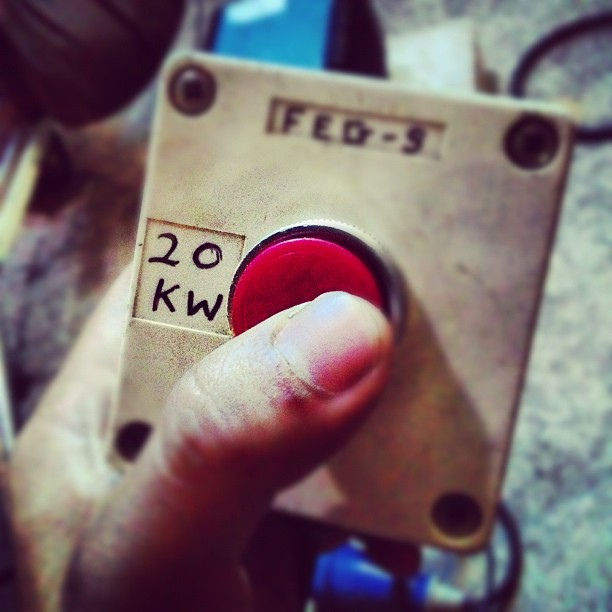It is rare to find a person who has not lost a loved one or friend to suicide.
The loss of friends who have done this have left their mark on me.
It is just as rare to encounter a person who has never contemplated ending their life.
In our society, people with suicidal tendencies are viewed as sick. Even the persons who only ruminate about ending their own life are viewed at with skepticism and fear. When a person reaches this stage, help and authentic support can be difficult to find, or reach out to.
While suicide is the last option, self-annihilation can be viewed as a beneficial aspect of life.
Before leaping to the comment box to lambast me for such an outrageous comment, please consider the deeper implications of self-annihilation.
Wanting to end oneself demonstrates a strong need for change. It is a recognition that life, and personal traits, are not working.
Wanting to end one’s life because life isn’t turning out as expected can be seen as immature and selfish. It is also a wake-up call of ginormous proportions. And if a person would take such radical steps to end life, then other radical steps can be attempted before hand. Putting a person down for reaching such a place is one of the least loving actions anyone could ever take.
It is difficult to see the benefit of self-destructive tendencies.
The challenge rests in how people face self-annihilation. The hyper-positive viewpoint that life must be all sunshine and roses denigrates and separates us from the shadow aspects of life. Death, grief, sickness, abandonment, pain are all natural and expected parts of our human experience. They happen to us all.
Wanting to end one’s own life can be reframed.
It could be a desire to improve one’s own lot in life. To be proactive, not knowing the steps to enact lasting change. Perhaps a person doesn’t want to end all of who they are, and simply wishes to change who they are now. It could be a wish to live a better tomorrow.
During troubled times it is difficult to accept oneself, the pain, and take any kind of positive action.
This is why focusing on the positive can be so detrimental—hiding from the aspects within that are screaming for and demanding attention and change will only build the pressure and drive for self-destruction.
Please understand that I am not saying a person who is caught within their own shadows needs to be coddled and have a pity-fest thrown for them. They may or may not need somebody to act for them, on their behalf. One hopes there is loving support when one discovers this aspect of life. Unfortunately, that love is not always available.
Honoring the need to end oneself can be liberating.
Reframing the need to see that one truly is wishing to be a different person can honor the cry for change.
Because when it really comes down to it, suicide happens once all hope is lost.
Until then, self-annihilation bears the hope that things will be better, that self-healing will occur.
Self-annihilation can be a catalyst for powerful and lasting transformation.
It could be a recognition that something within needs to be addressed. When in the emotional mire, what it is that requires attention can be difficult to pin-point. Sitting with oneself and honoring the self-destructive tendency can be excruciating. Inevitably strong emotions and discomforting patterns arise; self-doubt, self-hatred, shame, blame, guilt, and self-negation all rear their ugly heads.
In Buddhism there is an idea that demons are really angelic, that they need love and support to transform into the uplifted aspect.
When plagued by inner demons, trying to change the person before understanding what is really happening can only aggravate the issue. The person who is walking in the shadows of the valley of death needs a witness. A true friend who can be present, observe, and who is wise enough to speak when words are necessary, and be silent when stillness is called for. This type of spiritual vigil can be one of the most loving actions anyone can take for another person.
Denigrating the person who is going through self-annihilation will create an additional burden that could send them down a path of irrevocable actions. Trying to fix them only perpetuates the burden that person already carries, that something is wrong with them. Calling such a person selfish can be so violent it pushes them over the edge.
Self-annihilation occurs most often when life brings a depth of pain never experienced.
It is unimaginable that life could have reached that point. Sensitive individuals will take the burden on their own self, and become blind to the larger scope of life. This is natural, and can be liberating once the true cause and conditions are seen, embraced and moved through.
During such times, love and patience are essential. And if love cannot be given or received, patience and non-doing can bring a person to understanding and healing.
Aware action is called for. Ignoring the self-destructive tendency can lead to hopelessness.
Be cognizant of the beneficial aspect of self-annihilation before berating, denigrating or spewing positive platitudes.
See the hope in it. Acknowledge the positive aspects of the person.
Listen intently, past the words, to the souls need for union and healing.
And love fully, for it is needed the most at such times.
Love elephant and want to go steady?
Sign up for our (curated) daily and weekly newsletters!
Editor: Catherine Monkman
Photo: Francis Lim/Flickr







Read 1 comment and reply